
A 49-year-old female certified recreational scuba diver called the Divers Alert Network Emergency Hotline from George Town, Grand Cayman, around noon on a February day. She was experiencing a sudden, intense and sharp abdominal and back pain that had started 12 hours after her last dive, which had been on the previous day. That dive had been the third of a single-day series of mild, recreational repetitive scuba dives on air with no mandatory decompression stops. She had proper safety stops with the first two dives and maintained adequate surface intervals between all three dives.
Her dives had been uneventful until the last one, when she ran out of air after being at 10 metres (32 feet) for approximately 30 minutes. She had not been paying close attention to her air gauge and had to perform an emergency controlled ascent to the surface. Her buddy was too far away, so she ascended without any assistance. The diver likely started the dive with a half-empty cylinder by mistake.
She denied having any other symptoms, including skin discolouration, limb or joint pain, or any perceivable neurological deficit. She had no relevant past medical history, hypertension or other cardiological or vascular diseases.
This story is from the Issue 05 - 2020(119) edition of Scuba Diver.
Start your 7-day Magzter GOLD free trial to access thousands of curated premium stories, and 9,000+ magazines and newspapers.
Already a subscriber ? Sign In
This story is from the Issue 05 - 2020(119) edition of Scuba Diver.
Start your 7-day Magzter GOLD free trial to access thousands of curated premium stories, and 9,000+ magazines and newspapers.
Already a subscriber? Sign In
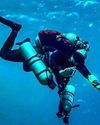
The Making Of A World Record-Breaking Diver
Descending more than 300 metres into the depths of the ocean may sound like a daunting prospect to even the most seasoned diver. But to one man, it was just another a challenge that he set for himself to see how far he was able to push the envelope.
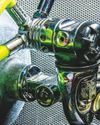
Risk Mitigation: Hose Failure
An unexpected outcome

Top 10 Wrecks Of Asia-Pacific
We present a curated list of the top 10 most famous wrecks found in the Asia-Pacific region, listed in no particular order
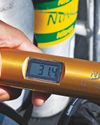
From The Medical Line: Diving After DCS
DAN medical information specaialists and researchers answer your dive medicine questions

Cave Exploration: Beginning With The End In Mind
Building complex adventures on simple skills
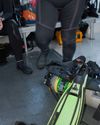
Dive Slate: Stay Safe On Board
When preparing for a dive, safety is at the top of the list – checking gear, learning potential site hazards and discussing procedures with your divemaster or buddy.

101 Tips On Becoming A Better Tek Diver
Technical diving takes divers beyond the typical recreational scuba diving limits, opening up many new and exciting possibilities.
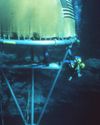
TECHNICAL DIVING TIMELINE (1660–1999)
It’s fair to say that the emergence of “technical diving” in the late 1980s, that is, the introduction of mixed gas technology, and later mixed gas rebreathers to the sport diving community, represented the culmination of hundreds of years of scientific discovery and technological development.

FLYING AFTER DIVING
From the Safety Stop

DIAGNOSING DECOMPRESSION ILLNESS
Incident Insight